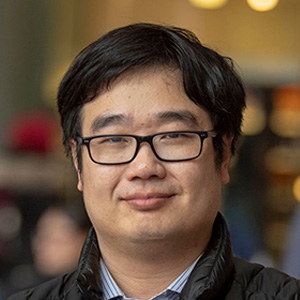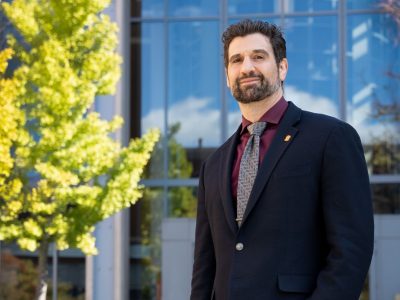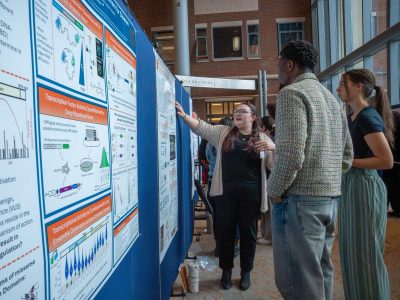Two faculty members in the College of Engineering and Computer Science (ECS)—Zhao Qin, assistant professor of civil and environmental engineering, and Reza Zafarani, associate professor of electrical engineering and computer science—recently reached a remarkable milestone: their respective works have been cited 10,000 times. This achievement underscores the widespread impact and scholarly importance of their research across the global scientific community.
“Ten thousand of anything is a lot, but for Professor Qin and Professor Zafarani to hit 10,000 citations in the scientific literature is absolutely outstanding! It demonstrates the outsized impact of their research to the community at large,” says ECS Interim Dean Jennifer Ross. “Further, these researchers incorporate students into their programs holistically, giving our students access to the most cutting-edge technological research in the world.”
Zhao Qin: Multiscale Modeling and Bio-Inspired Materials

Qin develops multi-scale, high-throughput computational modeling methods that allow for the investigation of materials across different scales, particularly the nano- and bio-scales. He applies these tools to reveal new mechanisms hidden in complex biological structures, with findings contributing to a fundamental understanding of diseases and ways to combat them.
His work on understanding biomaterials also includes the creation of better, stronger composite materials using smart choices and careful planning, so they work well but don’t cost as much energy or harm the planet. A core part of his work involves “learning from nature” to discover bio-inspired ideas for creating and designing living materials with innovative and advanced mechanical functions. This includes studying the structure and mechanics of natural materials—like mussel glue and insect wings—to inform the prototyping and optimization of new synthetic composite materials for efficient usage in engineering.
Reza Zafarani: Data Science, Social Media Mining and Networks

Zafarani is an expert at the intersection of data mining, machine learning and AI, focusing on applications and theory. His research centers on collecting and analyzing large-scale data to discover actionable patterns, often employing theories from the social sciences alongside advanced mathematical and machine learning techniques.
His primary interests include big data analytics, social media mining and network/graph mining. His research has helped shed light on human behavior online, including the early detection of “fake news” and the design of techniques to detect it using content or link information. His work also focuses on realistic modeling of human behavior using digital traces, which has implications for information verification and security.


